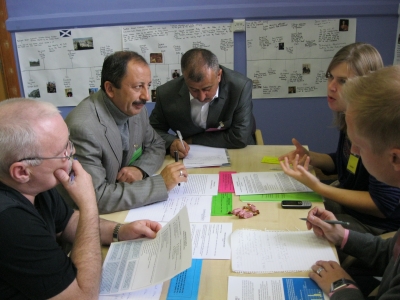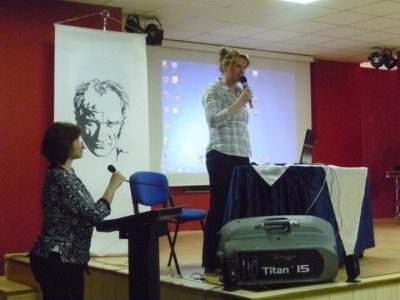This was a Leonardo da Vinci Partnership that lasted from 2009 - 2011
Aims of the project:
All partners experience problems with certain target groups who need vocational education and training courses to enter the labour market, but for different reasons, they drop out of their courses and return to unemployment. This project aims to increase the attractiveness of vocational education and training by promoting a series of interventions that partner countries have found successful, or are experimenting with, to encourage the learners to stay on and achieve their training objectives.
This project brings together 7 varying organisations from 6 countries (UK, Iceland, France, Finland, Belgium and Turkey) to share best practice and conduct action research on improving retention of disadvantaged learners on vocational education training (VET) courses.
The specific objects to be reached:
To collect and develop methods and materials which have shown to be useful in order to increase retetion.
To create a partnership of organisations across Europe who are trying to improve systems and supports for attracting and retaining disadvantaged learners in vocational education and training. Each organisation will demonstrate innovative best practice to other members of the partnership (LEO-OpObj-30) to improve the experience in vocational education and training in the following ways:
· teachers and guidance staff in each organisation will improve their methods and systems for guidance for these learners;
· teachers will adopt new methods for use in the classroom to build students’ confidence and their ability to cope with problems as they arise;
To share the findings and any new methods developed through a report and website.
This partnership aims to better understand the problems of drop out by looking at different levels of activity:
To understand the impact the barriers have on these students and why some students work through them, but others cannot.
Through the sharing of best practice amongst teachers, learn about different interventions and supports that can be given to improve retention and success. These will include how classroom based activity, class climate, co-operative techniques and peer support can help to reduce drop-out. Existing supports for these students focus on things that teachers and guidance staff can do to support small scale problems but rarely impact on the big issues that affect them and cause them to give up their studies.
This project partnership has found ways to build the confidence and self-esteem of individual vulnerable learners to develop their coping skills, and use the widest range of resources to help to find ways of keeping the students in a vocational learning environment.
The partnership developed a useful and practical tool for teachers where they can analyse their students risks of dropping out and try to find structural solutions to the problem. The tool got the name TOR - Tips On Retention.
You can access the TOR webside by clicking here: TOR http://tipsonretention.wikidot.com/
ICI's partner organizations for this project were:
Angus College (Scotland): This is a further education College with a wide range of vocational education and training courses. Teaching staff and guidance staff sometimes face problems with how to support disadvantaged learners who are at risk of dropping out. Standard interventions such as conventional guidance, counselling, and learners support are used successfully with some learners. However there remains a percentage of learners whose problems are deep–seated for example lack of family support, drug and alcohol problems and financial fears. These learners who are at risk of becoming excluded need interventions to support them to stay in training rather than give in to their problems.
Yenimahalle Directorate of National Education (Turkey): This is a governmental organization in charge of the planning and coordination of all education and training activities from pre-school to the end of secondary school, vocational high schools and technical schools in Yenimahalle District in Ankara. They have several departments: Vocational Guidance, Guidance Research and Development (DNR) for Teachers, Students and Parents, Non-Formal Public Education Centre, Vocational Training Centre, Apprenticeship and Vocational Technical Education which support adult training with non-formal courses to create a better social cohesion and opportunities for employability. They have a special interest in disadvantaged learners and run many training activities geared towards vocational education
Bolu Directorate of National Education (Bolu İl Milli Eğitim Müdürlüğü) (Turkey): This institution works under the Turkish Education Ministry and services administration, personnel, education, in-service training of teachers and other staff, budget, investments, investigation and guidance in educational institutions that are subsidiaries of the Ministry of Education. Departments include Education and Student Affairs, In- service Training, Social Operations and Press and Public Relations.
SupAgro Florac, (France): Montpellier SupAgro belongs to the French Ministry of Agriculture. One of its missions is to train and support teachers and educational teams. More specifically, it has considerable expertise in elaborating and developing new pedagogical, educational and didactical approaches for disadvantaged students/trainees. These include students having difficulties learning, those with addictions, psychological problems, suffering from discrimination, and more generally students and trainees at risk of social and professional exclusion. The organisation elaborates studies, diagnoses, trains, researches and carries out action research on this topic. They lead some thematic and national networks, including gender equality and integration of students at risk of exclusion.
Vinnova Adult Education Centre (Finland):ViInnova offers both vocational and pre-vocational training and special qualifications for adult learners in several fields (metal technology, construction, electronics, nursing, catering, business management, security etc) for adult learners in the cities of Rauma and Laitila. Its main customers are unemployed people (qualifications) and SME’s (consulting and personnel training). It has developed the cooperation of guidance experts and vocational teachers and thus has some success in combating social and pedagogical exclusion. They offer workforce training to disadvantaged unemployed people and bring experience of working with the secondary target group. Vinnova is developing its functions actively trough national and international development projects.
XIOS University College Limburg (Belgium): The department of teacher training delivers programmes preparing teachers for nursery school, primary school and secondary school (general subjects and physical education) and has a Student Guidance Centre. The institution is embedded in an area with a strong background of migration (for the mining industry), which makes it an area with a fairly high percentage of second and third generation migrants. Because of the pluralistic nature of the institution they attract students with very diverse backgrounds (e.g. religion, ethnicity, social-economic status). The Student Guidance Centre wants to optimise the study success of all students, with a specific focus on certain groups of disadvantaged learners. Even though they focus on certain target groups, they work with an inclusive approach to benefit all learners in need of extra guidance or support.
Socalled "Silent partner" from Iceland was Fjölbrautarskóli Suðurnesja
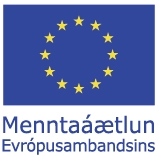
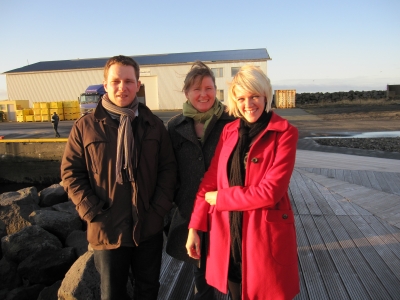
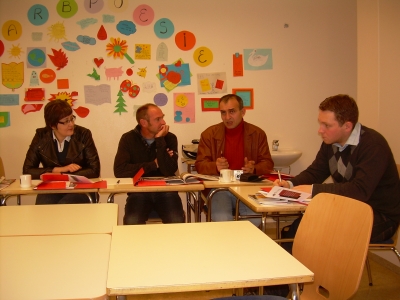
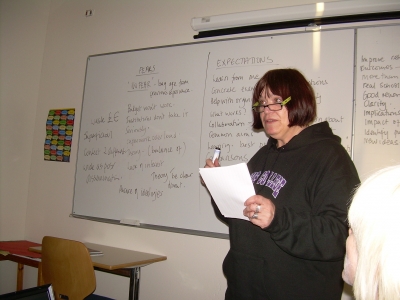
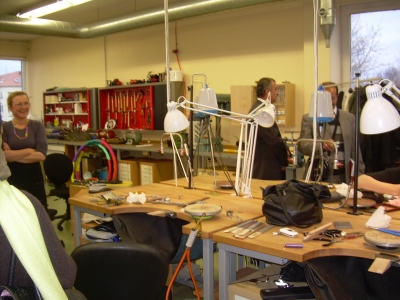
-400x300.jpg)
-400x300.jpg)
-400x300.jpg)
